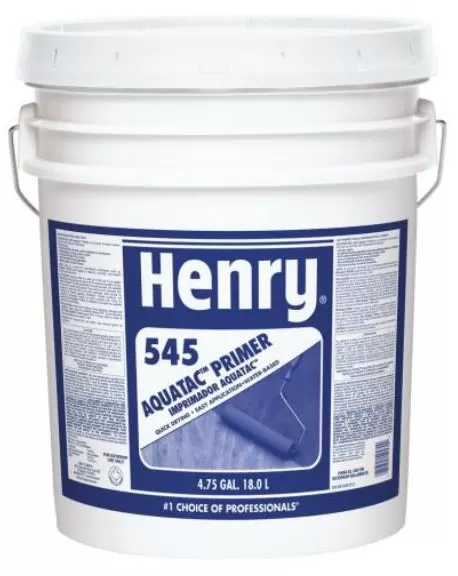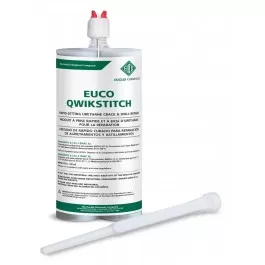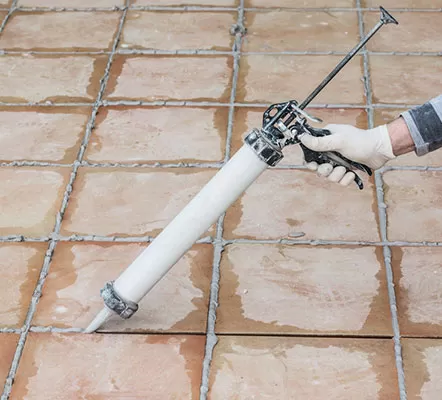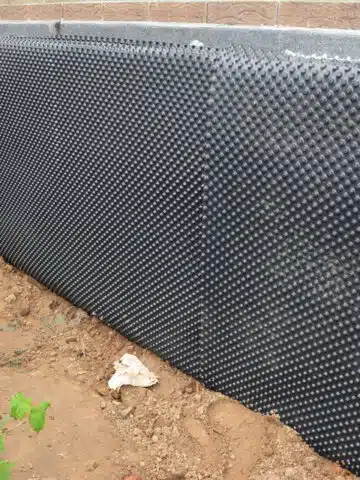Blog
Why Exterior Foundation Waterproofing Is Worth The Investment
The bedrock of any sturdy commercial structure lies in its foundation. For those in the commercial construction services, understanding the nuances of a building’s foundation and ensuring its longevity is paramount. One area often overlooked but vital in this context is exterior foundation waterproofing. This is particularly true when dealing with waterproofing cinder block walls and CMUs, which are commonly used in commercial spaces.
Exterior foundation waterproofing is a critical aspect of commercial construction. It’s essential for maintaining the structural integrity of buildings, especially those using cinder block walls and Concrete Masonry Units (CMUs), which are common in commercial spaces
Enhancing Structural Integrity
The very essence of any building, be it commercial or residential, rests on its foundation. This isn’t just a metaphorical assertion but a literal truth in the realm of construction. The foundation acts as the primary load bearing structure, absorbing and distributing the weight of the entire building. Now, when you introduce water or moisture into this equation, the foundation’s ability to bear this weight can be severely compromised. Especially when it comes to cinder block walls and CMUs, water infiltration can lead to an accelerated degradation process.
The porous nature of these materials makes them particularly susceptible to absorbing moisture, which over time can lead to the weakening of the blocks and the mortar binding them. The consequence? Cracks, fissures, and, in extreme cases, structural failure. Exterior foundation waterproofing, in this context, is more than just a protective measure. It’s an enhancement of the very structural integrity of the building. It acts as a shield, keeping out external moisture, thereby ensuring that the foundation remains robust and durable for years, if not decades, to come.
Countering Costly Repairs
Financial prudence in the commercial construction services sector is not just about cutting immediate costs but also about foreseeing and preventing future expenses. One of the heftiest expenses in building maintenance arises from repairing water damage. And when this damage is at the foundational level, the costs can skyrocket. The reason is simple: water damage is rarely isolated. What starts as a minor leak or seepage can soon evolve into a web of interconnected issues.
The dampness can erode the mortar, loosen cinder blocks, and even corrode any metal reinforcements present. Moreover, once water finds a way in, it paves the path for other problems. Mold and mildew can start forming, pests like termites might find the environment conducive, and insulation can get compromised. Addressing each of these issues not only demands a significant financial outlay but also can disrupt regular building operations.
Therefore, investing in exterior foundation waterproofing early on is not just about preventing water ingress; it’s a strategic move to counter potentially costly repairs and ensure smooth building operations.
Enhancing Property Value
For property investors and developers, maintaining the value of their commercial properties is essential. Buildings with a strong, waterproofed foundation tend to have a higher market value compared to those vulnerable to water damage. Potential buyers and renters see waterproofed foundations as a testament to the property’s durability and a sign that the building has been well maintained.
Promoting A Healthy Environment
Water infiltration doesn’t just affect the structural elements of a building. It also paves the way for mold and mildew growth. These biological entities can significantly degrade indoor air quality, posing health risks to occupants. By ensuring that the foundation is effectively waterproofed, the chances of mold growth are minimized, leading to a healthier environment inside the building. This is particularly important for commercial spaces where the health and safety of numerous occupants are at stake.
Energy Efficiency And Savings
Dampness and moisture intrusion through foundations can affect the overall insulation of a building. When moisture permeates walls, it can lead to heat loss during colder months and make air conditioning less effective during warmer periods. By waterproofing the foundation, not only is the moisture kept at bay, but the overall energy efficiency of the building is improved. Over time, this results in significant energy savings, reducing utility bills for the property.
Proactive Prevention Over Reactive Solutions
Taking a proactive stance by investing in foundation waterproofing early on ensures peace of mind for property owners and managers. Rather than constantly being on the lookout for signs of water damage or dealing with the aftermath of such damage, they can be confident in the durability and strength of the building’s foundation. In the realm of commercial construction services, this proactive approach translates to better client satisfaction, enhanced reputation, and reduced liabilities.
The foundation of a commercial structure is much more than just a base. It’s the element that bears the brunt of the building’s weight and ensures its stability. Given its importance, ensuring its protection from potential water damage should be a priority for anyone in commercial construction services.





